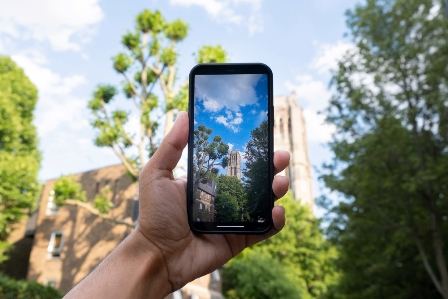Traveling has always been a popular activity, allowing people to discover new cultures, explore breathtaking landscapes, and create lasting memories. However, as the world continues to grapple with environmental challenges, it has become imperative to re imagine the way we travel. Sustainable tourism is emerging as a powerful force that is revolutionizing the way we explore the world. In this article, we will delve into the future of travel and how sustainable tourism practices are shaping the industry.
The Future of Travel: A Sustainable Perspective
Sustainable Tourism: A Definition
Before we dive deeper into the topic, let’s first understand what sustainable tourism entails. Sustainable tourism, also known as ecotourism or responsible tourism, refers to a way of traveling that minimizes negative impacts on the environment, supports local communities, and promotes cultural preservation. It aims to strike a balance between the economic benefits of tourism and the conservation of natural and cultural resources.
The Importance of Sustainable Tourism
Sustainable tourism is gaining momentum due to its numerous benefits. By adopting sustainable practices, we can protect fragile ecosystems, preserve cultural heritage, and contribute to local economies. Moreover, it allows us to travel responsibly, reducing our carbon footprint and minimizing pollution. With the growing concerns about climate change and environmental degradation, sustainable tourism has emerged as a viable solution for a more sustainable future.
Sustainable Travel: A Win-Win Situation
Many travelers are now realizing that sustainable tourism not only benefits the environment but also enhances their travel experiences. Sustainable travel offers unique opportunities to engage with local communities, immerse oneself in authentic cultural experiences, and explore off-the-beaten-path destinations. By choosing sustainable travel options, travelers can make a positive impact while enjoying enriching and meaningful journeys.
The Environmental Impact of Sustainable Tourism
Reducing Carbon Footprint: Eco-Friendly Transportation
One of the key aspects of sustainable tourism is minimizing the carbon footprint associated with travel. The transportation sector is a significant contributor to greenhouse gas emissions. To combat this, sustainable tourism promotes the use of eco-friendly transportation options. From electric vehicles and hybrid cars to bicycles and public transport, travelers have a wide range of choices to reduce their environmental impact while exploring new destinations.
Preserving Natural Resources: Conservation and Restoration
Sustainable tourism also emphasizes the importance of preserving natural resources. This includes protecting biodiversity, conserving water, and minimizing waste generation. Many destinations are now implementing conservation programs to safeguard their unique ecosystems. For instance, national parks and protected areas are implementing sustainable practices to ensure the long-term survival of their diverse flora and fauna.
Sustainable Accommodation: Green Hotels and Eco-Lodges
Another significant aspect of sustainable tourism is the accommodation sector. Green hotels and eco-lodges are becoming increasingly popular as travelers seek environmentally friendly places to stay. These establishments prioritize energy efficiency, waste reduction, and the use of renewable resources. By choosing eco-friendly accommodations, travelers can support sustainable initiatives while enjoying comfortable and responsible stays.
The Social and Economic Impact of Sustainable Tourism
Empowering Local Communities: Supporting Local Economies
Sustainable tourism places a strong emphasis on empowering local communities. It encourages travelers to support local businesses, artisans, and entrepreneurs, fostering economic growth and providing opportunities for sustainable development. By purchasing local products, engaging in community-based tourism activities, and respecting local customs and traditions, travelers can contribute directly to the well-being of the communities they visit.
Cultural Preservation: Promoting Authentic Experiences
In addition to economic empowerment, sustainable tourism promotes cultural preservation. It encourages travelers to respect and appreciate the cultural heritage of the destinations they explore. This involves engaging with local communities, participating in traditional activities, and learning about indigenous customs. By fostering cultural exchange, sustainable tourism creates meaningful connections between travelers and locals, resulting in authentic and immersive experiences.
Spreading Awareness: Education and Advocacy
Sustainable tourism also plays a crucial role in spreading awareness about environmental and social issues. Travelers who engage in sustainable practices become ambassadors for change. They can educate others about the importance of responsible travel and inspire them to adopt sustainable behaviors. Through advocacy and storytelling, travelers can contribute to a global movement towards a more sustainable future.
Frequently Asked Questions (FAQs)
Here are answers to some frequently asked questions about The Future of Travel: How Sustainable Tourism Is Revolutionizing the Way We Explore
Sustainable tourism, also known as ecotourism or responsible tourism, refers to a way of traveling that minimizes negative impacts on the environment, supports local communities, and promotes cultural preservation.
Sustainable tourism is important because it helps protect fragile ecosystems, preserve cultural heritage, and contribute to local economies. It also allows travelers to reduce their carbon footprint and enjoy enriching and meaningful journeys.
Travelers can reduce their environmental impact by choosing eco-friendly transportation options, conserving natural resources, and opting for green accommodations. Additionally, practicing responsible waste management and supporting local businesses can make a significant difference.
Sustainable tourism benefits local communities by supporting local economies, empowering artisans and entrepreneurs, and preserving cultural heritage. By engaging in community-based tourism activities and respecting local customs, travelers can directly contribute to the well-being of the communities they visit.
Sustainable tourism promotes cultural preservation by encouraging travelers to respect and appreciate the cultural heritage of the destinations they explore. By participating in traditional activities and learning about indigenous customs, travelers can foster cultural exchange and create meaningful connections with locals.
Travelers can raise awareness about sustainable tourism by educating others about responsible travel practices and sharing their experiences and stories. Through advocacy and social media, they can inspire others to adopt sustainable behaviors and contribute to a more sustainable future.
Conclusion
The future of travel lies in sustainable tourism. As travelers become more conscious of their environmental and social impact, they are embracing sustainable practices that prioritize the well-being of the planet and its inhabitants. By choosing eco-friendly transportation, supporting local communities, and preserving cultural heritage, we can revolutionize the way we explore the world. Let us embark on a journey towards a more sustainable future, where travel becomes a force for positive change.





